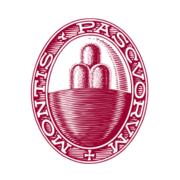The Italian Banking Tug-of-War: Credit Agricole vs. UniCredit
December 9, 2024, 4:14 am
In the heart of Europe, a banking battle brews. Credit Agricole, the French banking giant, is making waves in Italy. Its recent move to increase its stake in Banco BPM has set the stage for a fierce showdown with UniCredit. This clash is not just about numbers; it’s about strategy, influence, and the future of banking in Italy.
Credit Agricole has long been a player in the Italian market. With roots dating back to 1972, it has grown steadily, acquiring smaller banks and forming strategic partnerships. Its latest maneuver involves raising its stake in Banco BPM from 9.9% to 15.1%, with ambitions to reach 19.9%. This move comes with the informal backing of the Italian government, a crucial ally in navigating the complex landscape of Italian banking regulations.
The Italian government holds "golden powers," allowing it to intervene in significant corporate transactions. This means that any increase in shareholding in strategic sectors, including banking, requires government approval. Credit Agricole’s approach appears calculated. By securing informal support from Prime Minister Giorgia Meloni’s administration, it positions itself favorably in the ongoing consolidation of Italy’s banking sector.
However, this isn’t a one-sided affair. UniCredit, Italy’s second-largest bank, has thrown its hat into the ring with a bold bid for Banco BPM. Their unsolicited offer of €10 billion ($11 billion) has shaken the foundations of the banking landscape. UniCredit’s CEO, Andrea Orcel, is keenly aware of the stakes. He has emphasized the need for UniCredit to remain a key player in the rapidly evolving banking environment.
The tension escalates as Credit Agricole’s strategy unfolds. The French bank has ruled out a full takeover of Banco BPM, focusing instead on strengthening its commercial partnerships. This is a smart play. By increasing its stake, Credit Agricole aims to protect its interests in a market where it has significant revenue streams. Its partnerships in consumer credit and insurance with Banco BPM are vital. The stakes are high, and the competition is fierce.
UniCredit is not sitting idle. The bank has issued warnings to Banco BPM shareholders. It cautions them about the potential pitfalls of merging with Credit Agricole or Monte dei Paschi di Siena, another key player in the Italian banking scene. UniCredit argues that such moves could destroy shareholder value. The message is clear: the landscape is fraught with risks, and shareholders must tread carefully.
The backdrop to this drama is a broader trend of consolidation in the European banking sector. As banks seek to bolster their positions, mergers and acquisitions have become commonplace. The Italian government had hoped to facilitate a merger between Banco BPM and Monte dei Paschi, but UniCredit’s unsolicited bid has complicated those plans. The race for dominance in Italy’s banking sector is on, and every move counts.
Credit Agricole’s strategy hinges on maintaining its commercial agreements. Its asset management arm, Amundi, has a distribution contract with UniCredit that runs until 2027. This relationship adds another layer of complexity to the situation. As Credit Agricole seeks to expand its influence, it must navigate existing partnerships carefully.
The Italian banking sector is a chessboard, with each player making calculated moves. Credit Agricole’s increase in stake is a strategic play to enhance its negotiating power. It’s a defensive maneuver, aimed at safeguarding its interests while keeping an eye on UniCredit’s aggressive tactics. The French bank’s approach reflects a desire to solidify its position without triggering a full-blown takeover battle.
The stakes are high for all involved. For Credit Agricole, the goal is clear: to strengthen its foothold in Italy while avoiding the pitfalls of a hostile takeover. For UniCredit, the challenge is to assert its dominance and ensure that its bid for Banco BPM does not falter. The outcome of this battle will shape the future of banking in Italy.
As the dust settles, one thing is certain: the Italian banking landscape is in flux. The interplay between Credit Agricole and UniCredit will determine the direction of the sector. Will Credit Agricole successfully raise its stake and solidify its partnerships? Or will UniCredit’s bid for Banco BPM prevail, reshaping the competitive landscape?
In the end, this isn’t just about banking. It’s about power, strategy, and the future of finance in Italy. The players are set, the stakes are high, and the game is just beginning. The world will be watching as these two giants clash in a battle that could redefine the Italian banking sector for years to come.
Credit Agricole has long been a player in the Italian market. With roots dating back to 1972, it has grown steadily, acquiring smaller banks and forming strategic partnerships. Its latest maneuver involves raising its stake in Banco BPM from 9.9% to 15.1%, with ambitions to reach 19.9%. This move comes with the informal backing of the Italian government, a crucial ally in navigating the complex landscape of Italian banking regulations.
The Italian government holds "golden powers," allowing it to intervene in significant corporate transactions. This means that any increase in shareholding in strategic sectors, including banking, requires government approval. Credit Agricole’s approach appears calculated. By securing informal support from Prime Minister Giorgia Meloni’s administration, it positions itself favorably in the ongoing consolidation of Italy’s banking sector.
However, this isn’t a one-sided affair. UniCredit, Italy’s second-largest bank, has thrown its hat into the ring with a bold bid for Banco BPM. Their unsolicited offer of €10 billion ($11 billion) has shaken the foundations of the banking landscape. UniCredit’s CEO, Andrea Orcel, is keenly aware of the stakes. He has emphasized the need for UniCredit to remain a key player in the rapidly evolving banking environment.
The tension escalates as Credit Agricole’s strategy unfolds. The French bank has ruled out a full takeover of Banco BPM, focusing instead on strengthening its commercial partnerships. This is a smart play. By increasing its stake, Credit Agricole aims to protect its interests in a market where it has significant revenue streams. Its partnerships in consumer credit and insurance with Banco BPM are vital. The stakes are high, and the competition is fierce.
UniCredit is not sitting idle. The bank has issued warnings to Banco BPM shareholders. It cautions them about the potential pitfalls of merging with Credit Agricole or Monte dei Paschi di Siena, another key player in the Italian banking scene. UniCredit argues that such moves could destroy shareholder value. The message is clear: the landscape is fraught with risks, and shareholders must tread carefully.
The backdrop to this drama is a broader trend of consolidation in the European banking sector. As banks seek to bolster their positions, mergers and acquisitions have become commonplace. The Italian government had hoped to facilitate a merger between Banco BPM and Monte dei Paschi, but UniCredit’s unsolicited bid has complicated those plans. The race for dominance in Italy’s banking sector is on, and every move counts.
Credit Agricole’s strategy hinges on maintaining its commercial agreements. Its asset management arm, Amundi, has a distribution contract with UniCredit that runs until 2027. This relationship adds another layer of complexity to the situation. As Credit Agricole seeks to expand its influence, it must navigate existing partnerships carefully.
The Italian banking sector is a chessboard, with each player making calculated moves. Credit Agricole’s increase in stake is a strategic play to enhance its negotiating power. It’s a defensive maneuver, aimed at safeguarding its interests while keeping an eye on UniCredit’s aggressive tactics. The French bank’s approach reflects a desire to solidify its position without triggering a full-blown takeover battle.
The stakes are high for all involved. For Credit Agricole, the goal is clear: to strengthen its foothold in Italy while avoiding the pitfalls of a hostile takeover. For UniCredit, the challenge is to assert its dominance and ensure that its bid for Banco BPM does not falter. The outcome of this battle will shape the future of banking in Italy.
As the dust settles, one thing is certain: the Italian banking landscape is in flux. The interplay between Credit Agricole and UniCredit will determine the direction of the sector. Will Credit Agricole successfully raise its stake and solidify its partnerships? Or will UniCredit’s bid for Banco BPM prevail, reshaping the competitive landscape?
In the end, this isn’t just about banking. It’s about power, strategy, and the future of finance in Italy. The players are set, the stakes are high, and the game is just beginning. The world will be watching as these two giants clash in a battle that could redefine the Italian banking sector for years to come.


